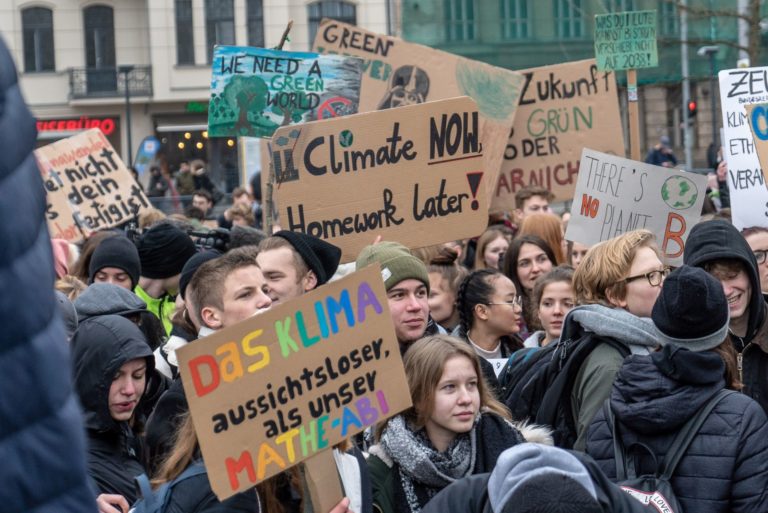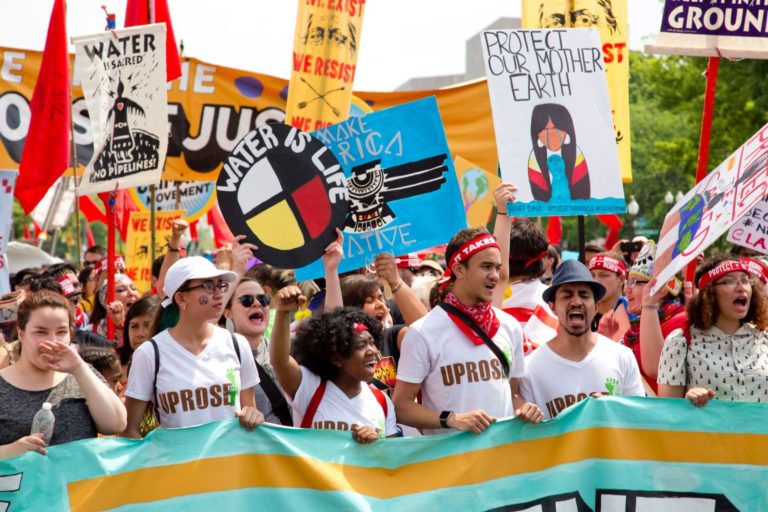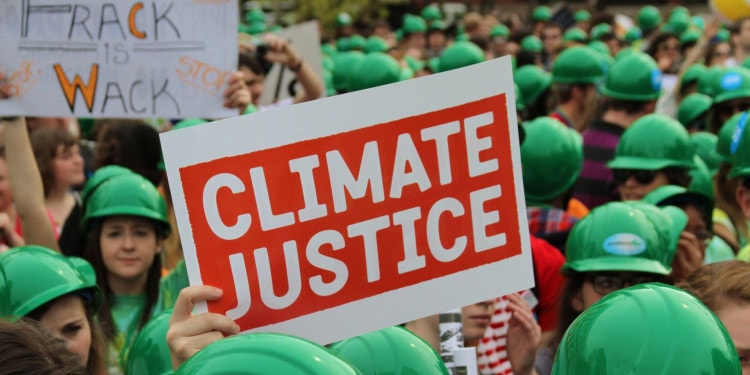If you ask the average student, “What is the biggest problem that the world faces today?” more often than not they will answer with the following two issues: (1) the detrimental effect of social media on society as a whole and (2) the global climate crisis. These are, at least, the responses I get from my students. These are the responses that ring out throughout social media (with some significant irony) and tend to get a great deal of readership throughout the world.
Over the last few months the views of students – at schools, colleges and universities – have started to make their presence known, disgruntling politicians (or poor excuses for them) the world over. The anguish and frustration, against the lack of meaningful political and economic change for climate justice, has hit many political institutions like a rock rippling on a murky pond.

It is interesting that within the United Kingdom, there has been a significant movement of a relatively well-educated youth, teaching politicians and passers-by about the significant failings of climate policy (which of course are linked to economic and social policy). The City of Edinburgh Council has, for example, supported students in marching and demonstrating for climate justice, whereas the British Government has shown disdain and displeasure of children ‘bunking off on a Friday afternoon’. This split between ‘The North’ and ‘The South’ is part of a much larger social and political issue that we do not have time to get into here, but it is indicative of a much larger problem and question governments needs to face: Should we listen to our children?
Academics from the University of Edinburgh certainly think so. At the heart of the debate in support of listening to the arguments of well-educated, reasonable, articulate young people is this: that we see these children as full-human beings. To see someone as a full human being is to negate objectification. We should, then, treat a human being as a person, who has thoughts, beliefs and values. The philosopher, P.F. Strawson, in a paper published in 1963, argued that when a child cannot comprehend the possible consequences of actions, we objectify them. It is a logical consequence of them not being able to have the foresight, the capability of reason, and general ability to be held accountable for their actions. Along this line of argument then, these students (persons) who articulate robust scientific knowledge and understanding are to be treated in such a way that we respect and recognize their capabilities and their personhood, in the urgent need to change both the human condition and human action.

The Governments of well-regarded educational systems have a lot of answer for if they do not support their children in exercising the very capacities they are educating for. We want our next generation of children to be critical thinkers, who hold each other to account, who question authority when such an authority cannot give reason for propositions (and at worse, policies!) – See Martha Nussbaum’s book Not for Profit: Why Democracy Needs the Humanities. Of course, the reason for disdain in some countries is that education is not intended to develop critical capacities. It is designed to function as a system of social control. There is nothing new in this idea. It is a debate in many historiographies of education and is an age-old issue harking back to Plato.
When the Prime Minister of the United Kingdom emerged from her BREXIT cesspit momentarily and tried to guilt children back to the classroom so as to save teacher’s workloads, she played a dangerous political game with the teaching profession and offered a subtext to be interpreted as the following: we shouldn’t listen to what these individuals have to say. This is of course deeply connected to the political ideology that she associates with (and the political opposition), but it is true also that those on the other side of the political spectrum (on the political left) would also see education as a system of social control (again this is nothing new). Chomsky calls education, ‘a system of indoctrination of the young’ and those children who do not comply with the rules or social conventions promoted within the education system are, ‘behavioural problems’.
Such articulate, knowledgeable, critical and astute behavioural problems – thinking persons – they are. The global site of peaceful youth climate activism is a testament to education systems doing what they are meant to be doing: enabling human beings to become persons. Persons who have a voice, who can use their knowledge – what is decided by governments (!) – and joining the dots together and seeing that in order to affect change, action must be taken. Imagine then, what kind of world we would live in if we began to take these persons – striking students – seriously. We might begin to see presidents and politicians reading a science book or taking experts seriously. Or, they might continue to degrade the quality and value of education to increase the controls they have over young persons. Both options are possible, but only one should be resisted.
Editor’s Picks – Related Articles:

“Green New Dealers: What Next?”
“When Dignity Transcends Human Behavior, We all Win”
For now, we should listen to the concerns of youth. We should take them seriously and treat them as the capable people they are. For if we do this, we commit ourselves to a dialogue for changing both the human condition (through education) and the world (that we will be able to live in). Yet we should not be idealistic. At the time of writing this article, the European Union is showing that it is unlikely to increase its action on climate change. Whilst such complacency occurs, the arguments for action will get stronger, thoughts of direct action will no doubt already be in the air, and the world will continue to be destroyed by thoughtless branches of humanity. Yet, what the climates strikes show is that these are not children to be ignored or to be objectified. They are persons to be listened to, to be counted. If older generations ignore them, they do so at their own peril.











